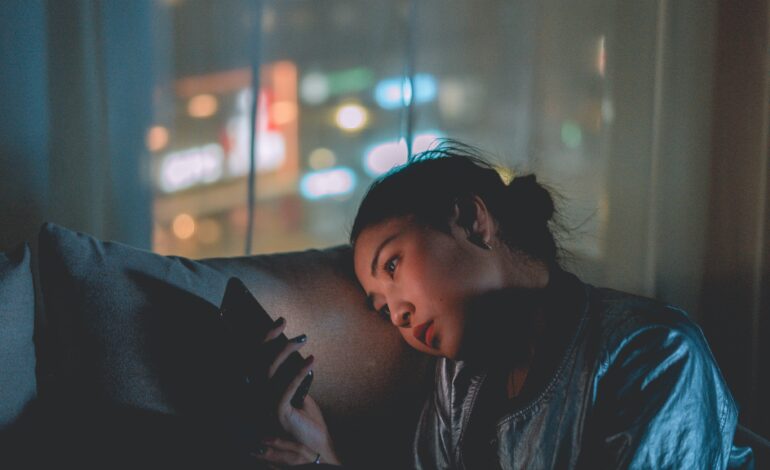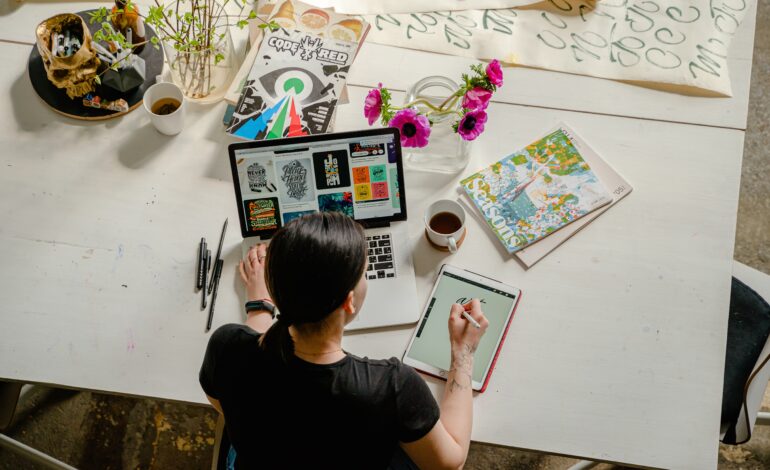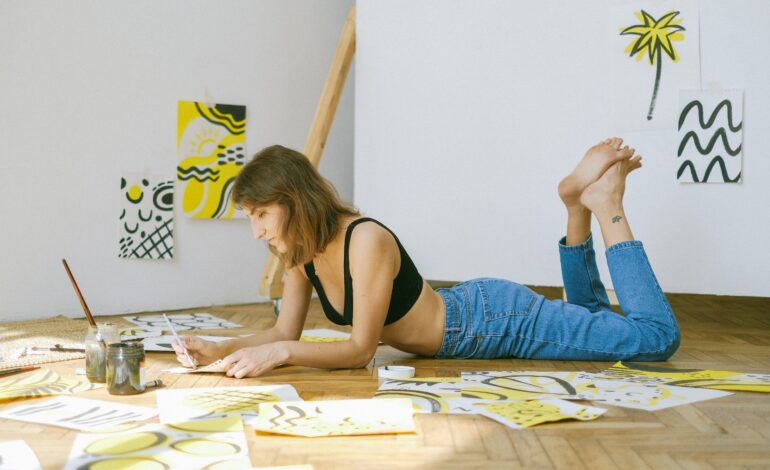
Art is often thought of as a form of self-expression, and it can be used to express feelings that might be difficult to put into words. In fact, art has been used as a form of expressive therapy for healing and improving mental well-being. Expressive therapy, including art therapy, involves the use of creative activities to help individuals process emotions, explore feelings, and communicate thoughts that may be difficult to express through words alone.
The impact of art on mental health is a subject of growing interest and research. Art has been used as a form of expressive therapy for healing and improving mental well-being.
Here are some ways in which art can positively impact mental health through expressive therapy:
Emotional expression
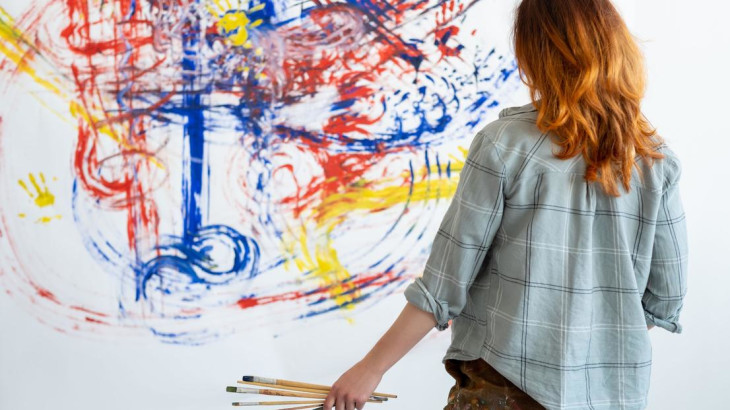
Art provides a safe and non-threatening way to express complex emotions, such as fear, anger, sadness, or joy. Creating art can help individuals process these feelings and gain insight into their emotional states.
For example, if you are feeling angry about something that happened in your life, you can use art to express that anger. You may want to paint a picture of the individual who made you angry or draw an illustration of what happened. By creating this artwork, you will be able to work through your feelings in a safe manner that does not cause harm to yourself or others around you.
Stress reduction
Have you ever been so stressed out that you couldn’t think straight? Maybe you were about to lose your job, or maybe you were just having a bad day. If so, then you’ve probably experienced the relief that comes from having a creative outlet for your stress.
Engaging in art-making can be a relaxing and meditative process. Focusing on the creative task at hand can help individuals temporarily escape from stressors and reduce anxiety. Art-making can take many forms, including painting, drawing, pottery and other types of crafts. The key is to choose an activity that appeals to your interests and abilities.
Self-awareness and self-esteem
Art is a way to express yourself and your inner experiences. It’s a way to get in touch with your feelings, your emotions, and what’s going on inside you. If you’re feeling stuck or confused about something, art can be a great way to express that confusion and help you find clarity.
Art also helps us understand ourselves better. We don’t always know how we feel about things until we try to put them into words through art. It’s an incredible experience that can really help us grow as people. Another benefit of creating art is that it boosts our self-esteem and confidence. When we see what we’ve created come together into something meaningful, it makes us feel good about ourselves—and when we feel good about ourselves, it shows!
Communication and socialization
Art can serve as a bridge for communication, especially for individuals who struggle with verbal expression or social interactions. It can create a shared language and foster connections between individuals in group therapy settings.
Art is also a great tool for socialization. Many children and teens are not comfortable talking about their feelings, but they may be more willing to express themselves through art activities. Because art is non-verbal, it allows students to express themselves without fear of being judged. Art therapy is an important part of many school systems because it helps children learn coping mechanisms and develop social skills.
Coping and resilience
Art has long been a tool for coping with difficult moments in life. Artists can express emotions that might otherwise be difficult to put into words, and they can create a safe space where they can explore feelings they don’t want to talk about. When we are able to explore these emotions through art, it often brings us closer to our own truths.
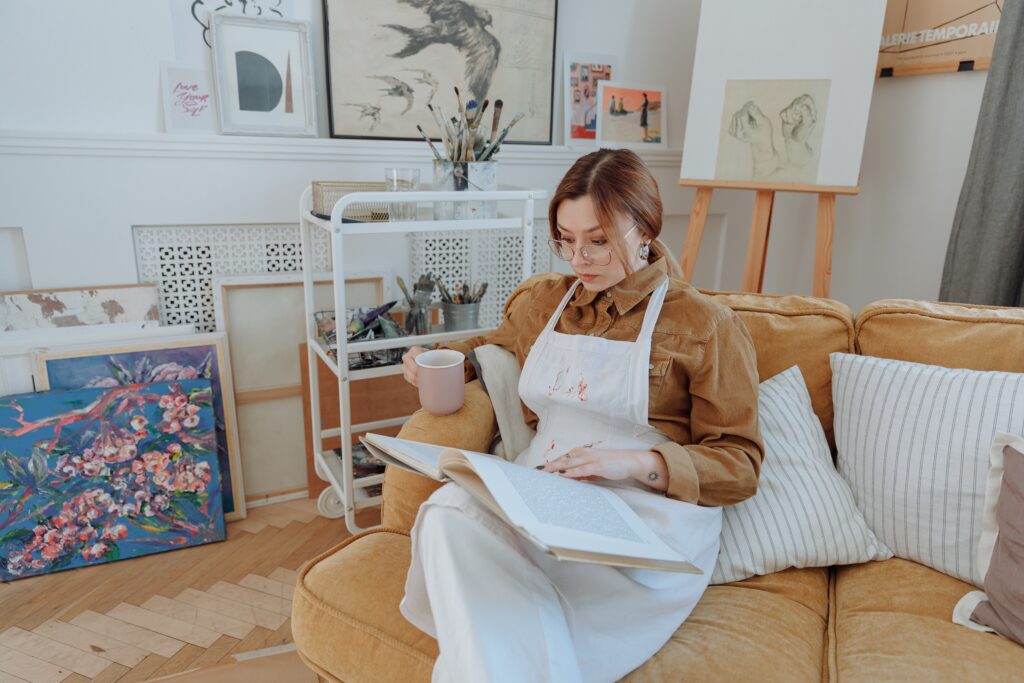
Art is also a great way to express ourselves and communicate our feelings. When we create art, we create something beautiful out of the ugliness of our lives—and it’s this transformation that makes it so powerful.
When we’re going through something hard in life, sometimes we need someone to just listen without judgment and without telling us what to do next. Art offers this kind of support: It gives us an outlet for our emotions and an opportunity to reflect on what’s happened or what’s going on in our lives at any given moment in time.
Cognitive stimulation
Art engages the brain in various ways, stimulating cognitive functions and promoting neural connections. This can be particularly beneficial for individuals dealing with cognitive decline or neurological disorders.
When you create art, your brain is forced to work harder than it normally would when faced with a task that requires your attention and focus. This kind of activity has been shown to have positive effects on the brain, including increased connectivity between neurons and increased activity in regions of the brain associated with motor skills, language processing, and memory recall.
Because art is so engaging, it can also help reduce stress levels by releasing endorphins into the body while also providing a sense of accomplishment when completed—all of which are known to improve moods!
It’s no secret that art is a powerful tool. It can be used to express our emotions and connect with others, and it can even help us heal.
Art therapy is the use of art-making activities as an intentional therapeutic practice to improve mental health, emotional well-being, and self-awareness. While art therapy can be helpful for many individuals, it is not a replacement for professional mental health treatment. It can complement traditional therapy approaches and be part of an integrative treatment plan.
It is conducted by trained professionals who have expertise in both art and therapy. They create a safe and supportive environment for individuals to explore their emotions through art and guide them through the creative process.
Overall, expressive therapy through art can be a powerful tool in promoting mental health, facilitating healing, and enhancing overall well-being. Its holistic and creative nature offers unique benefits that can address emotional, psychological, and cognitive aspects of a person’s life.
RUCHI RATHOR Founder & CEO
Payomatix Technologies Pvt. Ltd.
FOUNDER AND INVESTOR | PAYMENTS PROCESSING EXPERT | MERCHANT ACCOUNT SOLUTIONS | WHITE LABELLED PAYMENT GATEWAY | Dreamer, Creator, Achiever, Constantly Evolving
Website Ruchi Rathor: https://ruchirathor.com
Website Healing Heart https://thehealingheart.me/
Instagram https://www.instagram.com/_ruchirathor_/
LinkedIn https://www.linkedin.com/in/ruchirathor12/
Facebook https://www.facebook.com/ruchi.rathor.magnificient
Tumblr https://www.tumblr.com/blog/ruchirathor-thehealingheart
Medium https://medium.com/@ruchirathor_23436

